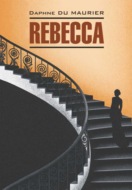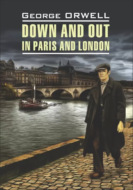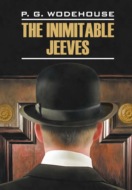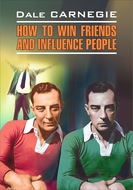Kitabı oku: «Фунты лиха в Париже и Лондоне / Down and Out in Paris and London. Книга для чтения на английском языке», sayfa 3
VII
My money oozed away – to eight francs, to four francs, to one franc, to twenty-five centimes; and twenty-five centimes is useless, for it will buy nothing except a newspaper. We went several days on dry bread, and then I was two and a half days with nothing to eat whatever. This was an ugly experience. There are people who do fasting cures of three weeks or more, and they say that fasting is quite pleasant after the fourth day; I do not know, never having gone beyond the third day. Probably it seems different when one is doing it voluntarily and is not underfed at the start.
The first day, too inert to look for work, I borrowed a rod and went fishing in the Seine, baiting with bluebottles. I hoped to catch enough for a meal, but of course I did not. The Seine is full of dace, but they grew cunning during the siege of Paris, and none of them has been caught since, except in nets. On the second day I thought of pawning my overcoat, but it seemed too far to walk to the pawnshop, and I spent the day in bed, reading the Memoirs of Sherlock Holmes66. It was all that I felt equal to, without food. Hunger reduces one to an utterly spineless, brainless condition, more like the after-effects of influenza than anything else. It is as though one had been turned into a jellyfish, or as though all one’s blood had been pumped out and luke-warm water substituted. Complete inertia is my chief memory of hunger; that, and being obliged to spit very frequently, and the spittle being curiously white and flocculent, like cuckoo-spit. I do not know the reason for this, but everyone who has gone hungry several days has noticed it.
On the third morning I felt very much better. I realized that I must do something at once, and I decided to go and ask Boris to let me share his two francs, at any rate for a day or two. When I arrived I found Boris in bed, and furiously angry. As soon as I came in he burst out, almost choking:
‘He has taken it back, the dirty thief! He has taken it back!’
‘Who’s taken what?’ I said.
‘The Jew! Taken my two francs, the dog, the thief! He robbed me in my sleep!’
It appeared that on the previous night the Jew had flatly refused to pay the daily two francs. They had argued and argued, and at last the Jew had consented to hand over the money; he had done it, Boris said, in the most offensive manner, making a little speech about how kind he was, and extorting abject gratitude. And then in the morning he had stolen the money back before Boris was awake.
This was a blow. I was horribly disappointed, for I had allowed my belly to expect food, a great mistake when one is hungry. However, rather to my surprise, Boris was far from despairing. He sat up in bed, lighted his pipe and reviewed the situation.
‘Now listen, mon ami, this is a tight corner67. We have only twenty-five centimes between us, and I don’t suppose the Jew will ever pay my two francs again. In any case his behaviour is becoming intolerable. Will you believe it, the other night he had the indecency to bring a woman in here, while I was there on the floor. The low animal! And I have a worse thing to tell you. The Jew intends clearing out of here. He owes a week’s rent, and his idea is to avoid paying that and give me the slip68 at the same time. If the Jew shoots the moon69 I shall be left without a roof, and the patron will take my suitcase in lieu of rent, curse him! We have got to make a vigorous move.’
‘All right. But what can we do? It seems to me that the only thing is to pawn our overcoats and get some food.’
‘We’ll do that, of course, but I must get my possessions out of this house first. To think of my photographs being seized! Well, my plan is ready. I’m going to forestall the Jew and shoot the moon myself. F – le camp – retreat, you understand. I think that is the correct move, eh?’
‘But, my dear Boris, how can you, in daytime? You’re bound to be caught.’
‘Ah well, it will need strategy, of course. Our patron is on the watch for people slipping out without paying their rent; he’s been had that way before70. He and his wife take it in turns all day to sit in the office – what misers, these Frenchmen! But I have thought of a way to do it, if you will help.’
I did not feel in a very helpful mood, but I asked Boris what his plan was. He explained it carefully.
‘Now listen. We must start by pawning our overcoats. First go back to your room and fetch your overcoat, then come back here and fetch mine, and smuggle it out under cover of yours. Take them to the pawnshop in the rue des Francs Bourgeois. You ought to get twenty francs for the two, with luck. Then go down to the Seine bank and fill your pockets with stones, and bring them back and put them in my suitcase. You see the idea? I shall wrap as many of my things as I can carry in a newspaper, and go down and ask the patron the way to the nearest laundry. I shall be very brazen and casual, you understand, and of course the patron will think the bundle is nothing but dirty linen. Or, if he does suspect anything, he will do what he always does, the mean sneak; he will go up to my room and feel the weight of my suitcase. And when he feels the weight of stones he will think it is still full. Strategy, eh? Then afterwards I can come back and carry my other things out in my pockets.’
‘But what about the suitcase?’
‘Oh, that? We shall have to abandon it. The miserable thing only cost about twenty francs. Besides, one always abandons something in a retreat. Look at Napoleon at the Beresina71! He abandoned his whole army.’
Boris was so pleased with this scheme (he called it une ruse de guerre72) that he almost forgot being hungry. Its main weakness – that he would have nowhere to sleep after shooting the moon – he ignored.
At first the ruse de guerre worked well. I went home and fetched my overcoat (that made already nine kilometres, on an empty belly) and smuggled Boris’s coat out successfully. Then a hitch occurred. The receiver at the pawnshop, a nasty, sour-faced, interfering, little man – a typical French official – refused the coats on the ground that they were not wrapped up in anything. He said that they must be put either in a valise or a cardboard box. This spoiled everything, for we had no box of any kind, and with only twenty-five centimes between us we could not buy one.
I went back and told Boris the bad news. ‘Merde!’ He said, ‘that makes it awkward. Well, no matter, there is always a way73. We’ll put the overcoats in my suitcase.’
‘But how are we to get the suitcase past the patron? He’s sitting almost in the door of the office. It’s impossible!’
‘How easily you despair, mon ami! Where is that English obstinacy that I have read of? Courage! We’ll manage it.’
Boris thought for a little while, and then produced another cunning plan. The essential difficulty was to hold the patron’s attention for perhaps five seconds, while we could slip past with the suitcase. But, as it happened, the patron had just one weak spot – that he was interested in le sport, and was ready to talk if you approached him on this subject. Boris read an article about bicycle races in an old copy of the Petit Parisien74, and then, when he had reconnoitred the stairs, went down and managed to set the patron talking. Meanwhile, I waited at the foot of the stairs, with the overcoats under one arm and the suitcase under the other. Boris was to give a cough when he thought the moment favourable. I waited trembling, for at any moment the patron’s wife might come out of the door opposite the office, and then the game was up. However, presently Boris coughed. I sneaked rapidly past the office and out into the street, rejoicing that my shoes did not creak. The plan might have failed if Boris had been thinner, for his big shoulders blocked the doorway of the office. His nerve was splendid, too; he went on laughing and talking in the most casual way, and so loud that he quite covered any noise I made. When I was well away he came and joined me round the corner, and we bolted.
And then, after all our trouble, the receiver at the pawnshop again refused the overcoats. He told me (one could see his French soul revelling in the pedantry of it) that I had not sufficient papers of identification; my carte d’identité75 was not enough, and I must show a passport or addressed envelopes. Boris had addressed envelopes by the score, but his carte d’identité was out of order (he never renewed it, so as to avoid the tax), so we could not pawn the overcoats in his name. All we could do was to trudge up to my room, get the necessary papers, and take the coats to the pawnshop in the Boulevard Port Royal.
I left Boris at my room and went down to the pawnshop. When I got there I found that it was shut and would not open till four in the afternoon. It was now about half-past one, and I had walked twelve kilometres and had no food for sixty hours. Fate seemed to be playing a series of extraordinarily unamusing jokes.
Then the luck changed as though by a miracle.76 I was walking home through the Rue Broca when suddenly, glittering on the cobbles, I saw a five-sou piece. I pounced on it, hurried home, got our other five-sou piece and bought a pound of potatoes. There was only enough alcohol in the stove to parboil them, and we had no salt, but we wolfed them, skins and all. After that we felt like new men, and sat playing chess till the pawnshop opened.
At four o’clock I went back to the pawnshop. I was not hopeful, for if I had only got seventy francs before, what could I expect for two shabby overcoats in a cardboard suitcase? Boris had said twenty francs, but I thought it would be ten francs, or even five. Worse yet, I might be refused altogether, like poor numéro 83 on the previous occasion. I sat on the front bench, so as not to see people laughing when the clerk said five francs.
At last the clerk called my number: ‘Numéro 117!’
‘Yes,’ I said, standing up.
‘Fifty francs?’
It was almost as great a shock as the seventy francs had been the time before. I believe now that the clerk had mixed my number up with someone else’s, for one could not have sold the coats outright for fifty francs. I hurried home and walked into my room with my hands behind my back, saying nothing. Boris was playing with the chessboard. He looked up eagerly.
‘What did you get?’ he exclaimed. ‘What, not twenty francs? Surely you got ten francs, anyway? Nom de dieu, five francs – that is a bit too thick. Mon ami, don’t say it was five francs. If you say it was five francs I shall really begin to think of suicide.’
I threw the fifty-franc note on to the table. Boris turned white as chalk, and then, springing up, seized my hand and gave it a grip that almost broke the bones. We ran out, bought bread and wine, a piece of meat and alcohol for the stove, and gorged.
After eating, Boris became more optimistic than I had ever known him. ‘What did I tell you?’ he said. ‘The fortune of war! This morning with five sous, and now look at us. I have always said it, there is nothing easier to get than money. And that reminds me, I have a friend in the rue Fondary whom we might go and see. He has cheated me of four thousand francs, the thief. He is the greatest thief alive when he is sober, but it is a curious thing, he is quite honest when he is drunk. I should think he would be drunk by six in the evening. Let’s go and find him. Very likely he will pay up a hundred on account. Merde! He might pay two hundred. Allons-y!77’
We went to the rue Fondary and found the man, and he was drunk, but we did not get our hundred francs. As soon as he and Boris met there was a terrible altercation on the pavement. The other man declared that he did not owe Boris a penny, but that on the contrary Boris owed him four thousand francs, and both of them kept appealing to me for my opinion. I never understood the rights of the matter. The two argued and argued, first in the street, then in a bistro, then in a prix fixe78 restaurant where we went for dinner, then in another bistro. Finally, having called one another thieves for two hours, they went off together on a drinking bout that finished up the last sou of Boris’s money.
Boris slept the night at the house of a cobbler, another Russian refugee, in the Commerce quarter. Meanwhile, I had eight francs left, and plenty of cigarettes, and was stuffed to the eyes with food and drink. It was a marvellous change for the better after two bad days.
VIII
We had now twenty-eight francs in hand, and could start looking for work once more. Boris was still sleeping, on some mysterious terms, at the house of the cobbler, and he had managed to borrow another twenty francs from a Russian friend. He had friends, mostly ex-officers like himself, here and there all over Paris. Some were waiters or dishwashers, some drove taxis, a few lived on women, some had managed to bring money away from Russia and owned garages or dancing-halls. In general, the Russian refugees in Paris are hard-working people, and have put up with their bad luck far better than one can imagine Englishmen of the same class doing. There are exceptions, of course. Boris told me of an exiled Russian duke whom he had once met, who frequented expensive restaurants. The duke would find out if there was a Russian officer among the waiters, and, after he had dined, call him in a friendly way to his table.
‘Ah,’ the duke would say, ‘so you are an old soldier, like myself? These are bad days, eh? Well, well, the Russian soldier fears nothing. And what was your regiment?’
‘The so-and-so, sir,’ the waiter would answer.
‘A very gallant regiment! I inspected them in 1912. By the way, I have unfortunately left my notecase at home. A Russian officer will, I know, oblige me with three hundred francs.’
If the waiter had three hundred francs he would hand it over, and, of course, never see it again. The duke made quite a lot in this way. Probably the waiters did not mind being swindled. A duke is a duke, even in exile.
It was through one of these Russian refugees that Boris heard of something which seemed to promise money. Two days after we had pawned the overcoats, Boris said to me rather mysteriously:
‘Tell me, mon ami, have you any political opinions?’
‘No,’ I said.
‘Neither have I. Of course, one is always a patriot; but still – Did not Moses say something about spoiling the Egyptians? As an Englishman you will have read the Bible. What I mean is, would you object to earning money from Communists?’
‘No, of course not.’
‘Well, it appears that there is a Russian secret society in Paris who might do something for us. They are Communists; in fact they are agents for the Bolsheviks. They act as a friendly society, get in touch with exiled Russians, and try to get them to turn Bolshevik. My friend has joined their society, and he thinks they would help us if we went to them.’
‘But what can they do for us? In any case they won’t help me, as I’m not a Russian.’
‘That is just the point. It seems that they are correspondents for a Moscow paper, and they want some articles on English politics. If we got to them at once they may commission you to write the articles.’
‘Me? But I don’t know anything about politics.’
‘Merde! Neither do they. Who does know anything about politics? It’s easy. All you have to do is to copy it out of the English papers. Isn’t there a Paris Daily Mail79? Copy it from that.’
‘But the Daily Mail is a Conservative paper. They loathe the Communists.’
‘Well, say the opposite of what the Daily Mail says, then you can’t be wrong. We mustn’t throw this chance away, mon ami. It might mean hundreds of francs.’
I did not like the idea, for the Paris police are very hard on Communists, especially if they are foreigners, and I was already under suspicion. Some months before, a detective had seen me come out of the office of a Communist weekly paper, and I had had a great deal of trouble with the police. If they caught me going to this secret society, it might mean deportation. However, the chance seemed too good to be missed. That afternoon Boris’s friend, another waiter, came to take us to the rendezvous. I cannot remember the name of the street – it was a shabby street running south from the Seine bank, somewhere near the Chamber of Deputies. Boris’s friend insisted on great caution. We loitered casually down the street, marked the doorway we were to enter – it was a laundry – and then strolled back again, keeping an eye on all the windows and cafés. If the place were known as a haunt of Communists it was probably watched, and we intended to go home if we saw anyone at all like a detective. I was frightened, but Boris enjoyed these conspiratorial proceedings, and quite forgot that he was about to trade with the slayers of his parents.
When we were certain that the coast was clear we dived quickly into the doorway. In the laundry was a Frenchwoman ironing clothes, who told us that ‘the Russian gentlemen’ lived up a staircase across the courtyard. We went up several flights of dark stairs and emerged on to a landing. A strong, surly-looking young man, with hair growing low on his head, was standing at the top of the stairs. As I came up he looked at me suspiciously, barred the way with his arm and said something in Russian.
‘Mot d’ordre!80’ he said sharply when I did not answer.
I stopped, startled. I had not expected passwords.
‘Mot d’ordre!’ repeated the Russian.
Boris’s friend, who was walking behind, now came forward and said something in Russian, either the password or an explanation. At this, the surly young man seemed satisfied, and led us into a small, shabby room with frosted windows. It was like a very poverty-stricken office, with propaganda posters in Russian lettering and a huge, crude picture of Lenin tacked on the walls. At the table sat an unshaven Russian in shirt-sleeves, addressing newspaper wrappers from a pile in front of him. As I came in he spoke to me in French, with a bad accent.
‘This is very careless!’ he exclaimed fussily. ‘Why have you come here without a parcel of washing?’
‘Washing?’
‘Everybody who comes here brings washing. It looks as though they were going to the laundry downstairs. Bring a good, large bundle next time. We don’t want the police on our tracks.’
This was even more conspiratorial than I had expected. Boris sat down in the only vacant chair, and there was a great deal of talking in Russian. Only the unshaven man talked; the surly one leaned against the wall with his eyes on me, as though he still suspected me. It was queer, standing in the little secret room with its revolutionary posters, listening to a conversation of which I did not understand a word. The Russians talked quickly and eagerly, with smiles and shrugs of the shoulders. I wondered what it was all about. They would be calling each other ‘little father’81, I thought, and ‘little dove’1, and ‘Ivan Alexandrovitch’, like the characters in Russian novels. And the talk would be of revolutions. The unshaven man would be saying firmly, ‘We never argue. Controversy is a bourgeois pastime. Deeds are our arguments.’ Then I gathered that it was not this exactly. Twenty francs was being demanded, for an entrance fee apparently, and Boris was promising to pay it (we had just seventeen francs in the world). Finally Boris produced our precious store of money and paid five francs on account.
At this the surly man looked less suspicious, and sat down on the edge of the table. The unshaven one began to question me in French, making notes on a slip of paper. Was I a Communist? he asked. By sympathy, I answered; I had never joined any organization. Did I understand the political situation in England? Oh, of course, of course. I mentioned the names of various Ministers, and made some contemptuous remarks about the Labour Party. And what about le sport? Could I do articles on le sport? (Football and Socialism have some mysterious connexion on the Continent.) Oh, of course, again. Both men nodded gravely. The unshaven one said:
‘Evidemment82, you have a thorough knowledge of conditions in England. Could you undertake to write a series of articles for a Moscow weekly paper? We will give you the particulars.’
‘Certainly.’
‘Then, comrade, you will hear from us by the first post tomorrow. Or possibly the second post. Our rate of pay is a hundred and fifty francs an article. Remember to bring a parcel of washing next time you come. Au revoir83, comrade.’
We went downstairs, looked carefully out of the laundry to see if there was anyone in the street, and slipped out. Boris was wild with joy. In a sort of sacrificial ecstasy he rushed into the nearest tobacconist’s and spent fifty centimes on a cigar. He came out thumping his stick on the pavement and beaming.
‘At last! At last! Now, mon ami, out fortune really is made. You took them in finely. Did you hear him call you comrade? A hundred and fifty francs an article – nom de dieu84, what luck!’
Next morning when I heard the postman I rushed down to the bistro for my letter; to my disappointment, it had not come. I stayed at home for the second post; still no letter. When three days had gone by and I had not heard from the secret society, we gave up hope, deciding that they must have found somebody else to do their articles.
Ten days later we made another visit to the office of the secret society, taking care to bring a parcel that looked like washing. And the secret society had vanished! The woman in the laundry knew nothing – she simply said that ‘Ces messieurs85’ had left some days ago, after trouble about the rent. What fools we looked, standing there with our parcel! But it was a consolation that we had paid only five francs instead of twenty.
And that was the last we ever heard of the secret society. Who or what they really were, nobody knew. Personally I do not think they had anything to do with the Communist Party; I think they were simply swindlers, who preyed upon Russian refugees by extracting entrance fees to an imaginary society. It was quite safe, and no doubt they are still doing it in some other city. They were clever fellows, and played their part admirably. Their office looked exactly as a secret Communist office should look, and as for that touch about bringing a parcel of washing, it was genius.
Ücretsiz ön izlemeyi tamamladınız.








